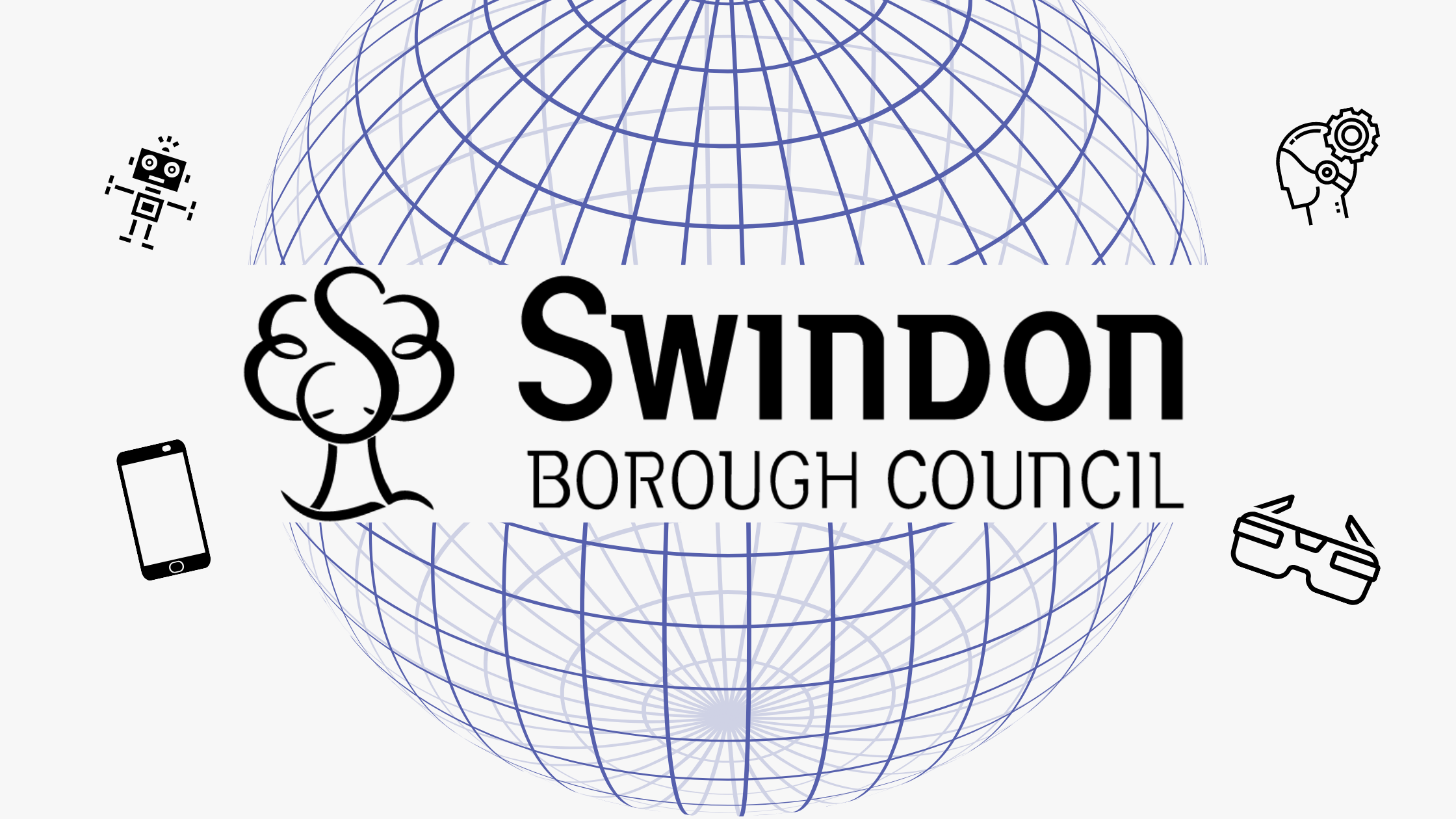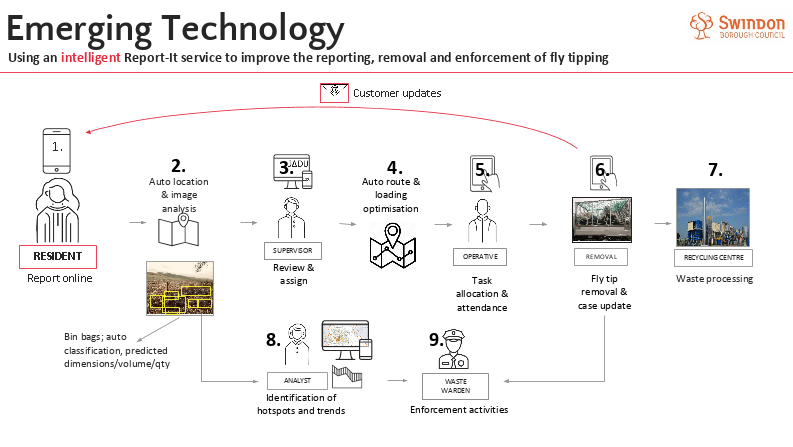Swindon Borough Council: Using Emerging Technology to Improve Efficiencies during COVID- 19
Councils have had to react quickly during the pandemic, launching new services at speed and moving team members into different service areas to support with the increase in demand. This includes service areas such as supporting the vulnerable, applying for Business Grants, delivering and applying for food parcels.
 Swindon Borough Council utilised emerging technology during the COVID-19 Pandemic to help improve efficiencies for its management of processes and online service delivery. We recorded a short 15 minute podcast with Sarah Talbot, Emerging Technology Lead at Swindon Borough Council. We found the conversation so interesting, we thought it would also be useful to provide a quick roundup of the conversation.
Swindon Borough Council utilised emerging technology during the COVID-19 Pandemic to help improve efficiencies for its management of processes and online service delivery. We recorded a short 15 minute podcast with Sarah Talbot, Emerging Technology Lead at Swindon Borough Council. We found the conversation so interesting, we thought it would also be useful to provide a quick roundup of the conversation.
The council uses Jadu as its main platform for citizen engagement. During the pandemic, the opportunity arose for the council to look at work previously done on report-it style service delivery patterns to reapply this work to other processes using Jadu data capture. This included services such as fly-tipping, that utilised machine-learning, localised geospatial
visualisation, route navigation and optimisation to name but a few technologies.
The council then looked at decoupling and reusing these components in different ways, enabling two-way integration through the various interoperability capabilities that the Jadu platform provides, such as web hooks and the Jadu API to streamline data delivery to other systems and services to improve accuracies and efficiencies. Below we look at two examples.
Example 1: Free School Meals:
There was a 2000% increase in free school meal applications during the pandemic. The huge spike in demand was coming into a business unit that had up until now been managing the process manually. The team needed a solution to be able to process the sheer volume of applications quickly to support children and families with the needed and relevant food vouchers.
The Emerging Technology Team used Robotic Process Automation (RPA) from NDL to read in data from existing emails sent as part of the form submission and application process, and then apply automation (it’s important to note that RPA is not doing any of the decision making).
“Using the Jadu XFP mail form data email, the team interpreted the data and populated it into a structured database which the council's Robotics Process Automation can monitor in real-time. At the moment it picks up an application from Jadu, it processes through to the Department for Education and then into the council’s Children's System, generating the
appropriate better information for parent-carers and schools. It checks the eligibility and runs it through the necessary checks.”
Sarah Talbot, Emerging Technology Lead, Swindon Borough Council.
If for any reason, information is submitted incorrectly, the council has ‘Exceptions Management’ set up that allows the business unit to intervene and resolve the application on an individual basis.
“For high-volume, low-value work, RPA is now supporting these applications. With the increase in demand, the council has reduced the process to just managing exceptions alone, taking the process from approximately 583 hours per month down to 9.6 hours per month.
So whilst the service has seen a 2000% increase in applications, this has been delivered without the need to increase staff or re-allocate resources - totalling a 98.3% efficiency increase, a fantastic result for the council.”
Sarah Talbot, Emerging Technology Lead, Swindon Borough Council.
Example 2: Fly Tipping/Food and Medicine Delivery
The council took route-optimisation work it had developed using the Map box and Google Maps navigation features for the reporting and collection of fly-tipping and applied this to be used for services such as Food and Medicine delivery. Similarly, they used the geospatial information to make deliveries in the most optimised way based on locality to where volunteers were in relation to those vulnerable in the community needing assistance.
“In terms of the neural network modelling and deep machine learning, that's through things like AWS image recognition. So that enables us to classify images for fly-tipping, graffiti, potholes. The localised geospatial visualisation is through a council system solution called iShare. The route navigation and optimisation is through Map box and Google Maps, and the
sentiment analysis that we're working on, it's AWS Comprehend, using also things like S3 Buckets and additionally some Python. Similarly for the fly-tipping stuff, and the RPA, we're working with a company called NDL who've got a really good toolkit within that space that also allows us to reuse that for things like system integrations and data movement and it
does OCR work as well, so handwriting recognition.”
Sarah Talbot, Emerging Technology Lead.

As a result of all of this rapid innovation, Swindon Borough Council have seen really positive gains in efficiency without the need to increase expenditure in the council (the majority of the work is within free tier and open source, so minimal cost, we’re talking a couple of pounds a month).
The Emerging Technology Team have been able to take a number of other areas (on top of the two outlined above) during the COVID-19 crisis where there has been large demand and complex processes and improved the efficiencies through pairing and integrating technology platforms , creating a wealth of opportunity for the council to continue innovating and moving online service delivery forward.
A huge well done to the Swindon team!
We’d also like to hear and write about your stories, so please do keep us updated with the great work you are doing!



Leave a comment